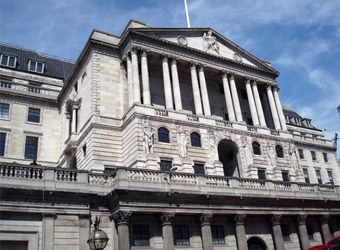British inflation jumped to its highest level in more than five years in September, according to official data that could make the Bank of England more likely to hike interest rates next month.
Consumer prices last month were 3.0 percent higher than a year ago, the Office for National Statistics said on Tuesday, matching economists’ average expectation in a Reuters poll and marking the fastest rise since April 2012.
Rising inflation – driven largely by the pound’s fall since last year’s Brexit vote – has squeezed household incomes this year, causing broader economic growth to slow, as wages have failed to keep pace with the rising cost of living.
Nonetheless, last month the BoE said it expected to raise interest rates in the coming months, so long as the economy and price pressures continued to strengthen.
A majority of economists polled by Reuters think the BoE will move at its next meeting in November – but most also said it would be a mistake to act now.
“Food prices and a range of transport costs helped to push up inflation in September. These effects were partly offset by clothing prices that rose less strongly than this time last year,” said ONS statistician Mike Prestwood.
Last month the BoE said it expected inflation to exceed 3 percent in October, higher than it had forecast just a month before, when it predicted it would take more than three years for inflation to return to its 2 percent target.
Although much of the effect of the pound’s decline has already been felt by consumers, some retailers are only now starting to pass on price rises.
On Monday, furniture retailer IKEA Group said it had increased prices in Britain by 3 percent to compensate for the slump in sterling.
The pound has fallen around 12 percent since the referendum against a trade-weighted basket of major currencies such as the U.S. dollar and the euro.
Last week BoE Governor Mark Carney said the central bank expected to raise interest rates in the coming months but he declined to be drawn on whether it would be as soon as next month, or if a series of rises is planned.
Core consumer price inflation – which strips out changes in the typically volatile prices of energy, food, alcohol and tobacco – was steady at 2.7 percent, as expected in the Reuters poll.
Annual growth in factory gate prices cooled to 3.3 percent, as expected, compared with 3.4 percent in August.
But prices paid by factories for materials and energy rose by 8.4 percent year-on-year, the same rate as August’s upwardly revised figure and slightly higher than forecast.
The ONS also released figures for house prices in August, which showed an 5.0 percent annual rise across the United Kingdom as a whole compared with a 4.5 percent increase in July. Prices in London alone rose 2.6 percent.
Source: Reuters


